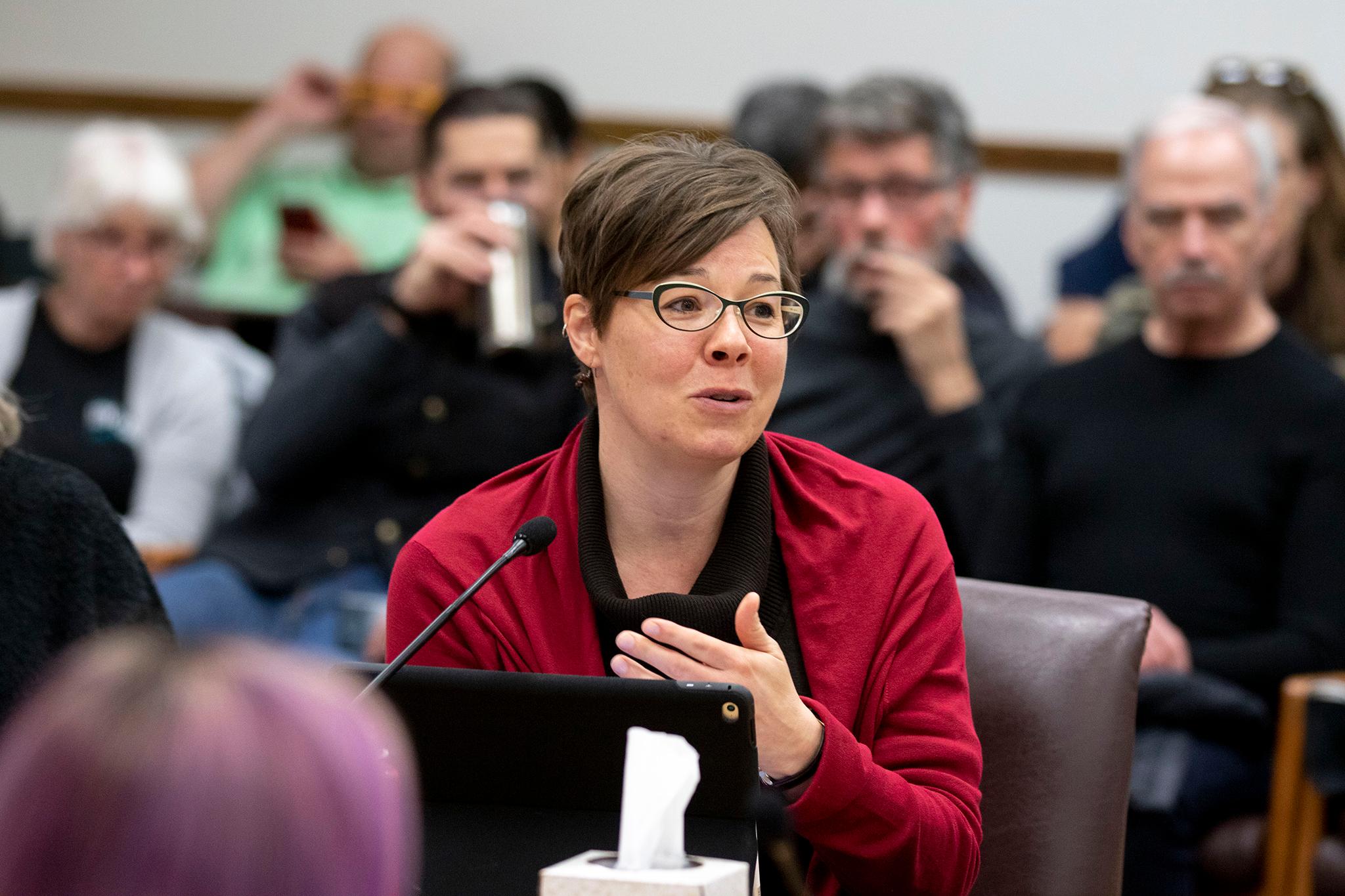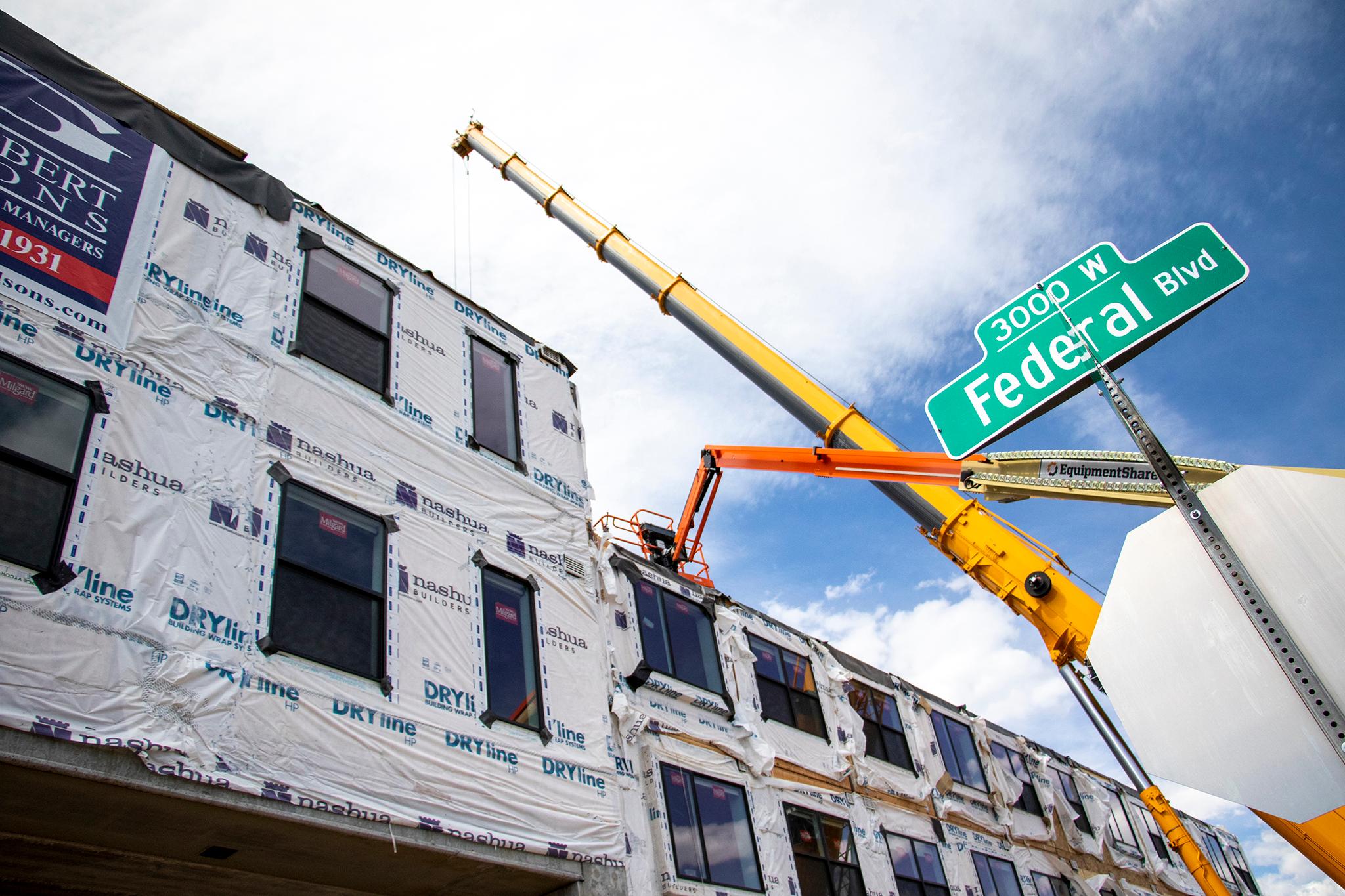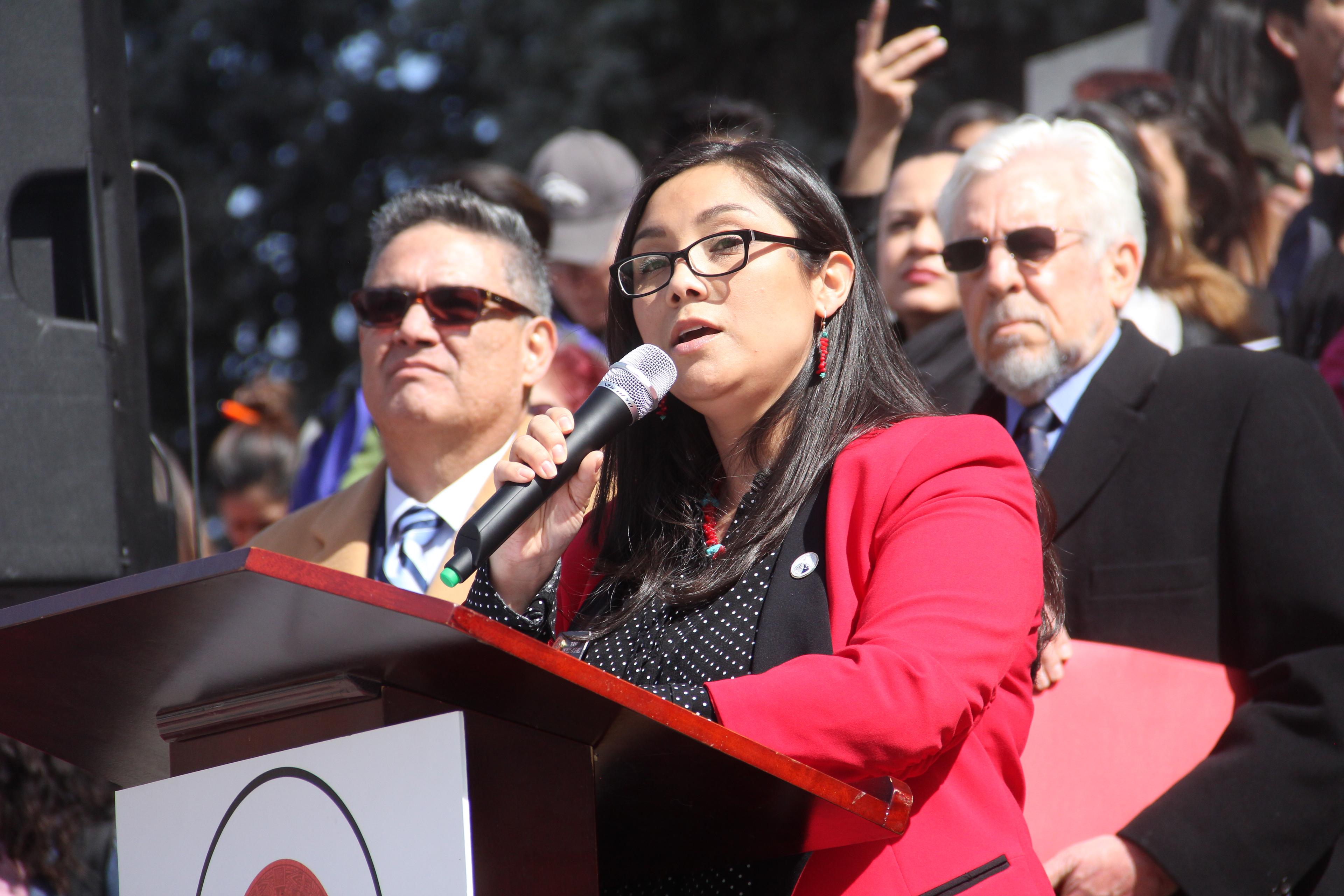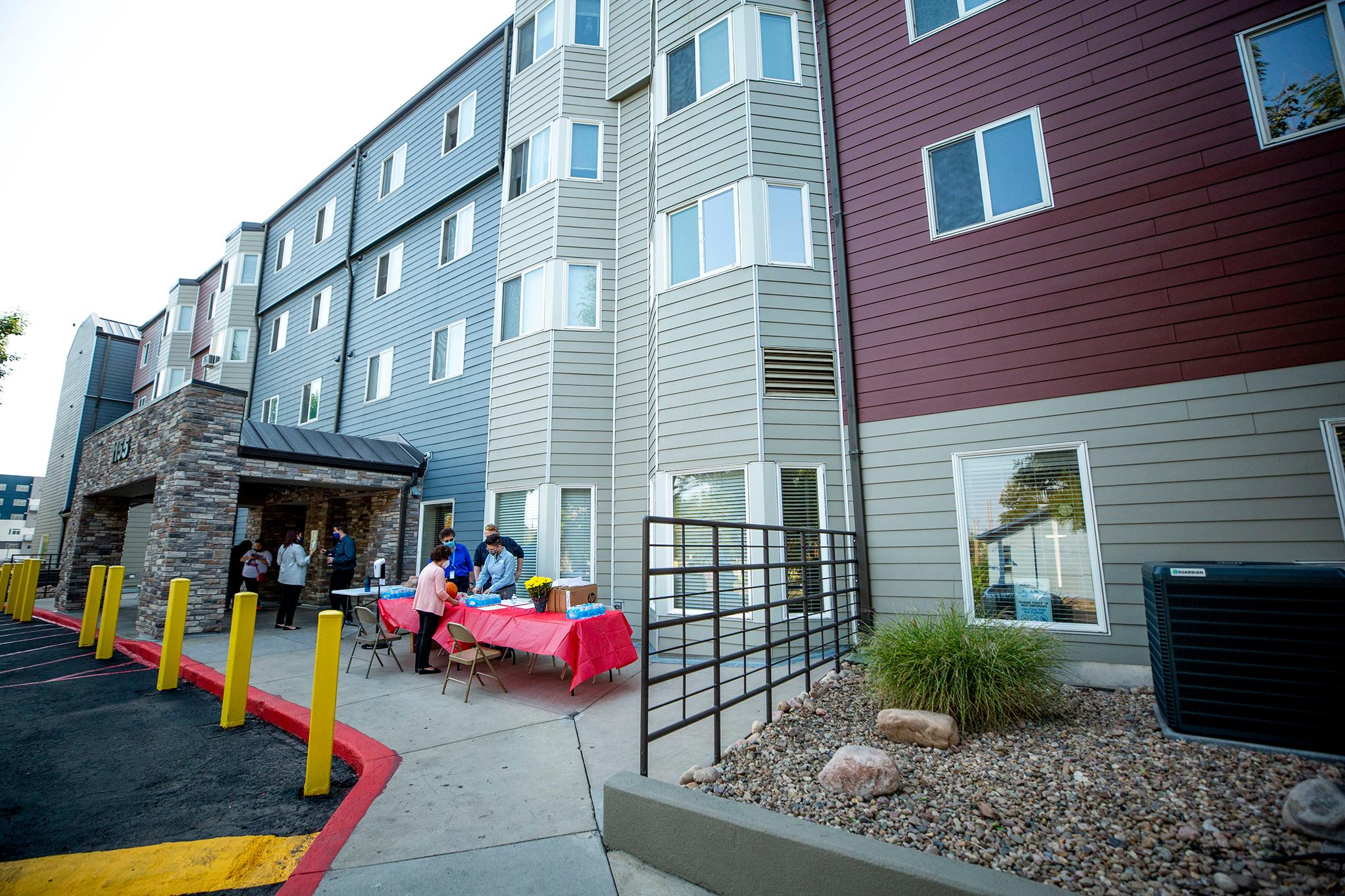When State Rep. Serena Gonzales-Gutierrez ran for her seat in 2018, she and her future legislative colleagues heard the same concern over and over when knocking on doors in Denver.
"One of the main issues was affordable housing," said Gonzales-Gutierrez, who grew up in North Denver, an area she now represents in the General Assembly.
Now, she and her colleagues are hoping a new law passed during the most recent legislative session could put a dent in the housing crisis in Denver and throughout the state. The law allows cities to require a certain number of affordable housing units in housing developments. But cities must also provide developers with an alternative, such as paying a fee instead. And the law does not define "affordable."
Gonzales-Gutierrez believes the new law could address gentrification in her own district, which includes a chunk of Colfax Avenue, a dividing line, as she sees it, between affluent residents living north of the street and more working-class folks living south of it.
"The hope is that this will generate the ability to have more mixed-income, more affordability so that we are not having this kind of segregation that has happened because of the gentrification that has occurred," Gonzales-Gutierrez said.
Denver City Councilmember Robin Kniech served as a sort of technical advisor for the bill, giving state lawmakers a sense for how it would work on the ground.
"Because Denver's so poised to take advantage of this, it was also important as we were discussing amendments to the bill, helping to make sure that those amendments were ones that local governments could really use," Kniech said.

The law aims to create more affordable housing, but Kniech, who's advocated for and passed housing-related bills on Denver City Council, said she believes it will help build moderate-income housing, because she said inclusionary zoning typically isn't designed to help build extremely low-income housing. While it may not necessarily target the city's poorest residents, Kniech said the law will allow city lawmakers to focus other resources on the city's lowest-income residents.
"So one of the things that's really important for the community to understand is that this tool is for moderate-income housing, and it's for a modest supply," Kniech said.
Denver used to have its own inclusionary zoning law.
The law required developers to build a certain percentage of affordable housing units in new developments, but also let them opt out by paying a fee -- basically what the state law will allow cities to do.
However, Denver's old law applied only to units that were for sale, not rentals. It was replaced in 2016 by a fee on new construction that goes toward an affordable housing fund. Deputy Director of Housing Opportunity Debra Bustos said the fund gets about $30 million a year, which the city then uses to partially pay for housing projects (the city also gets federal money to build affordable housing).
Since 2011, 8,380 income-restricted units have been built or preserved in Denver, according to Derek Woodbury, spokesperson for the city's Department of Housing Stability.
The new state law will allow cities to require developers to build affordable housing in rental and for-sale properties.
Before the bill passed, Kniech said a City Council committee started looking into how Denver can use the law, which goes into effect Sept. 1. Kniech said the committee will devise how the law will be applied in Denver, and City Council at large will have the final say.
While the details are being hashed out, Kniech said she would like to require buildings with 10 or more units to have some affordable housing.

Developers will still be able to pay a fee instead of incorporating affordable housing, but, "the truth is we can make that option more or less attractive based on how we calibrate it," Kniech said.
"The short story is we can start with an expectation that says, please build (affordable housing) on-site, and then here's the option if you don't want to do that," she continued. "But we have some control over how we design those options."
The city will also have to define "affordable," which it traditionally measures using the area median income. A unit at 80 percent AMI -- a common threshold for affordable housing projects -- means a single person can't make more than $54,950 a year in order to be eligible to live there. Kniech said new data is suggesting using a lower AMI and extending certain requirements, like making sure units stay affordable for decades.
Metropolitan State University of Denver social work affiliate professor Tony Hernandez said a lack of affordable housing can have major impacts on cities like Denver. He said the new state law would remedy some of those issues.
"The lack of affordable housing is a major barrier to jobs, and it's a major contributor to air pollution because if I have to drive longer distances to get to my job or get to my house, I can actually pollute more," Hernandez said. "The intersectionality of this policy is significant and can benefit throughout the state."
He said the law probably won't be popular among developers, who focus on building housing that makes money. Plus, they might see it as more red tape.

The Apartment Association of Metro Denver, Colorado Association of Home Builders, Colorado Landlord Legislative Coalition, NAIOP Colorado (which focuses on commercial real estate development) and Rocky Mountain Home Association all opposed the bill as it made its way through the statehouse. During testimony and in statements, representatives from those organizations suggested it wouldn't actually help create more affordable housing. They also voiced concerns about restrictions created by the law, with some even likening it to rent control.
The Denver Metro Association of Realtors opposed the bill as well. Peter Wall, director of government affairs for DMAR, said in a statement to Denverite the city needs to work "collaboratively with developers to get these affordable units built."
"DMAR cares deeply about having affordable housing for all," Wall said in a statement. "With that said, we hope Denver and other cities will take a thoughtful, data-driven approach to future affordable housing initiatives."
The law's prime sponsors were all Democratic lawmakers who represent Denver. Gonzales-Gutierrez was joined by State Rep. Susan Lontine and State Sens. Julie Gonzales and Robert Rodriguez.
But the entire state is grappling with a housing crisis. Lawmakers heard stories from places like Summit County, where Gonzales-Gutierrez said teachers are sleeping in cars because they can't afford to live there. Affordability for teachers is a concern in neighboring Eagle County, too.
"This is not a Denver issue only," Gonzales-Gutierrez said.













